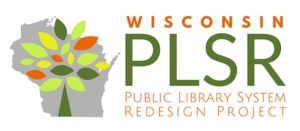The Wisconsin PLSR Project: A Project Manager’s Perspective on Why it Matters

This blog post is the first in a series of reflections from WiLS on the PLSR Project so far. Look for the next edition next week!
Wisconsin’s library system law, providing funding for coordinated regional library services, officially went into effect in 1971 when Senate Bill 47 was signed into law (1971 Act 152). The creation of public library systems fostered the establishment of a strong network of resource sharing and mutually beneficial interdependence. The actual creation and development of public library systems in Wisconsin was a voluntary and gradual process. No county or public library is required to be a member of a library system; yet, as of this writing, all of Wisconsin’s 72 counties and more than 380 public libraries are library system members. Wisconsin’s 17 public library systems developed in distinct ways in response to the needs of their member libraries and area residents.
While changes in society, resources, and technologies have created new demands and opportunities for systems, the law and services required of them as well as many of their practices are still relatively unchanged from the original law. The library community—the systems, libraries, and the legislature—has recognized the need to update what is required of library systems as well as to redesign the services in a manner that is more efficient and effective.
The Wisconsin Public Library System Redesign Project (PLSR) is a community-based project to consider how to best provide public library system services in Wisconsin. Building on the work of many, its goal is to develop a plan for implementation of new models of service. The process, led by the Steering Committee and managed by WiLS, will include nine workgroups to consider new models for services. The outcome of the process will be recommendations for new models of service and how to implement these new models.
As project managers for the first phase of this project, we think it is important to share our thoughts and reflections on why this process matters to us and why WiLS wanted to undertake the work of managing it. Three WiLS staffers who have been deeply involved with the PLSR share their stories.
Melissa McLimans
 While I have always been a user of public library services, both print and electronic, spaces and programs, I have been clueless when it came to how these services, programs and collections are facilitated and shared across the state of Wisconsin through our library system. So, getting the chance to work on the PLSR project is an amazing learning opportunity — I’m learning about public library systems, and how they differ and match across the state, state law and policy, and how invested our public libraries, library systems, folks at DPI and many, many others in the library community are in improving services to Wisconsin library patrons. To be able to support the people doing this challenging work is personally satisfying.
While I have always been a user of public library services, both print and electronic, spaces and programs, I have been clueless when it came to how these services, programs and collections are facilitated and shared across the state of Wisconsin through our library system. So, getting the chance to work on the PLSR project is an amazing learning opportunity — I’m learning about public library systems, and how they differ and match across the state, state law and policy, and how invested our public libraries, library systems, folks at DPI and many, many others in the library community are in improving services to Wisconsin library patrons. To be able to support the people doing this challenging work is personally satisfying.
Bruce Smith
 Previous to joining WiLS, my career in libraries had been working for a library system providing services to member libraries. Over the years I’ve had the opportunity to work with amazing member library staff and wonderful system colleagues. From my experiences and learning from others, I know how important and vital the services systems provide to member libraries are to help them do more for their patrons, through collaboration and coordination, than they can do on their own. I also know that many things have changed since systems were first formed in 1971, from what libraries and their patrons now need from shared services and with new capabilities for how services can be delivered to libraries. I look forward to working with everyone involved in this project to make services to libraries and patrons great for the next 50 years.
Previous to joining WiLS, my career in libraries had been working for a library system providing services to member libraries. Over the years I’ve had the opportunity to work with amazing member library staff and wonderful system colleagues. From my experiences and learning from others, I know how important and vital the services systems provide to member libraries are to help them do more for their patrons, through collaboration and coordination, than they can do on their own. I also know that many things have changed since systems were first formed in 1971, from what libraries and their patrons now need from shared services and with new capabilities for how services can be delivered to libraries. I look forward to working with everyone involved in this project to make services to libraries and patrons great for the next 50 years.
Stef Morrill
 The PLSR project has the potential to drastically change the landscape of services provided to public libraries in Wisconsin. While exciting and hopeful, it’s also difficult to consider the amount of change that may need to occur in our public library systems to reach the new vision of service. WiLS had to make the hard choice to go through such a change in 2013. For WiLS, the result of that process is an organization that is more aware and in-line with member needs, and is always changing to improve the services we provide. I’m glad to be part of this process to offer support and encouragement and to help by sharing our experiences.
The PLSR project has the potential to drastically change the landscape of services provided to public libraries in Wisconsin. While exciting and hopeful, it’s also difficult to consider the amount of change that may need to occur in our public library systems to reach the new vision of service. WiLS had to make the hard choice to go through such a change in 2013. For WiLS, the result of that process is an organization that is more aware and in-line with member needs, and is always changing to improve the services we provide. I’m glad to be part of this process to offer support and encouragement and to help by sharing our experiences.
If you are interested in learning more about PLSR, there will be a Town Hall Talk at WAPL in Oshkosh on Thursday, May 12th from 5:30-7:00pm. Appetizers will be provided, and we encourage library staff at all levels to participate. For questions, please don’t hesitate to contact us.



Comments are closed.